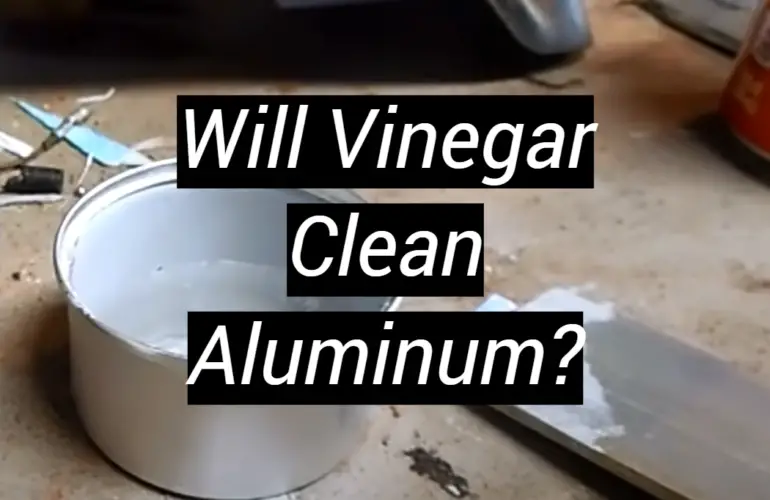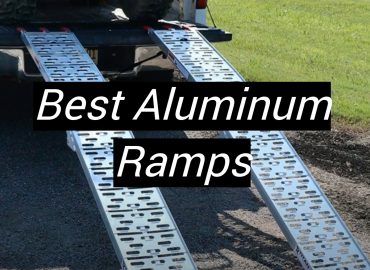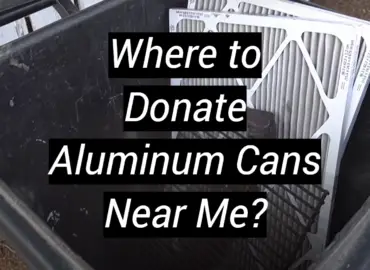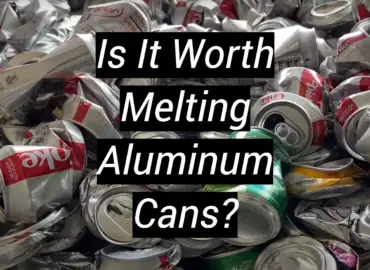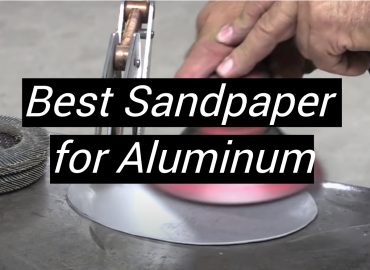Have you ever found yourself in need of a quick and easy way to clean aluminum surfaces, but unsure of the best solution? If so, then look no further – vinegar may be just the answer. Not only is vinegar known for its multitude of uses around the home, it can also be an inexpensive and effective cleaner for your beloved aluminum items. In this blog post we will discuss the safety concerns as well as efficacy pros and cons of using vinegar to clean aluminum surfaces. Without further ado, let’s dive into how to effectively use Vinegar for cleaning work!
Is It Safe to Clean Aluminum?
It is safe to clean aluminum. However you need to use the correct type of cleaner and cleaning tools when cleaning aluminum. Abrasive cleaners or tools can scratch aluminum surfaces which can lead to discoloration and wear.
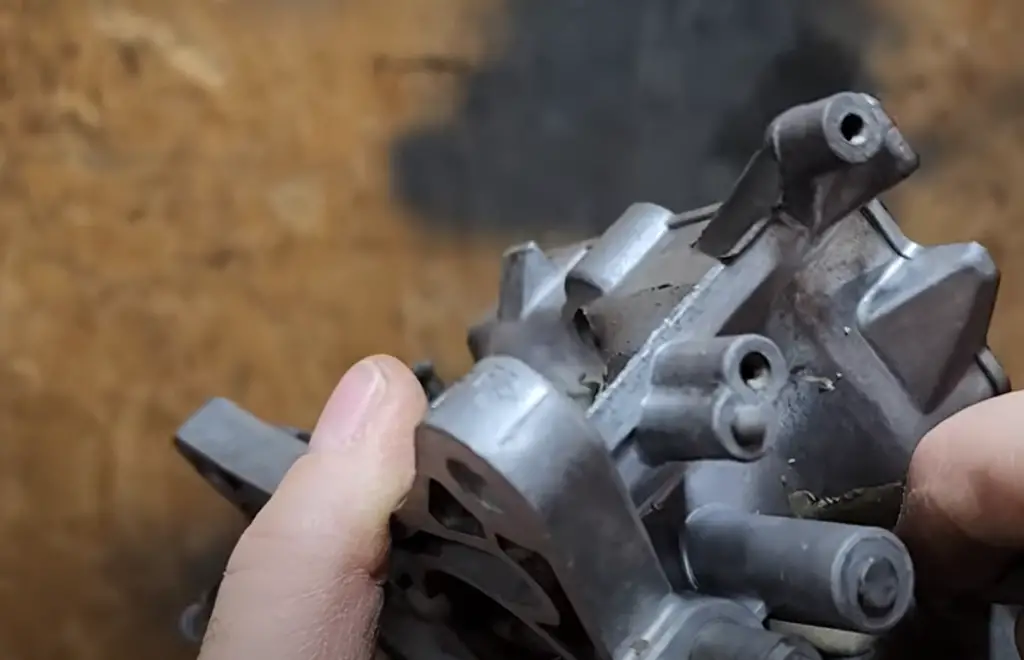
Cleaning solutions designed specifically for aluminum are available and are recommended when cleaning your aluminum items. Some household products that can be used on aluminum include vinegar, baking soda, lemon juice, and club soda.
Take a soft cloth or sponge with any of these liquids to gently scrub away dirt buildup without scratching the aluminum surface.
If you must use harsh chemicals on aluminum, be sure to read the directions and use them only as directed. When taking care of your aluminum items, you can maintain their pristine condition for years to come. [1]What Are the Ways to Clean Aluminum at Home?
- Baking Soda and Water: Combine baking soda with water to create a paste, then use that paste to scrub aluminum. This method is great for removing grease and rust from surfaces.
- Vinegar Solution: Mix equal parts of white vinegar and warm water in a bucket or container. Dip a soft cloth into the mixture, wring it out, and wipe down the surface of the aluminum. Allow the solution to sit on the surface for five minutes before wiping it away with a damp rag.
- Lemon Juice: Cut a lemon in half and rub it over the aluminum surface to remove dirt, grime, and stains. This natural acidic cleaner works well on stained metal surfaces.
- Baking Soda and Lemon Juice: Mix baking soda with a few drops of lemon juice to create a paste. With a soft cloth, rub the paste over the aluminum in circular motions to remove dirt and corrosion.
- Aluminum Polish: Use an aluminum polish and soft rag to clean aluminum surfaces. The polish can be found at most hardware stores or online retailers.
- Rust Remover: Depending on the severity of rust buildup, use a commercial-grade rust remover to get rid of it from aluminum surfaces. Follow all safety precautions when using this type of product and wear protective gear such as gloves and eye protection if necessary.
- Toothpaste: Squeeze out a small amount of tartar-control toothpaste onto a soft cloth and rub it in circular motions over the aluminum. The abrasive material will help to remove dirt, grease, and grime.
- Ammonia: Mix 1/2 cup of ammonia with 1 gallon of warm water. Soak a cloth in the solution and clean all of the aluminum surfaces in your home. Make sure you open windows or turn on fans to ventilate the area before cleaning as ammonia fumes can be toxic in confined spaces.
- Dryer Sheets: Rubbing dryer sheets against aluminum can help reduce static electricity buildup and clean away fingerprints from metal surfaces. This method works great for electronics such as laptops and cell phones made out of aluminum.
- WD-40: Spray a light amount of WD-40 on aluminum surfaces to remove dirt, grease, and grime. Please use a gentle cloth to clean away the debris and then rinse the area with water. It is important to note that this method should not be used for food preparation areas as WD-40 is not considered food safe. [2]
What Aluminum Items Can Be Cleaned With Vinegar?
Vinegar is a great natural cleaner for many aluminum items, such as pots, pans and baking trays. You can also use vinegar to clean aluminum utensils, including forks, spoons and knives.
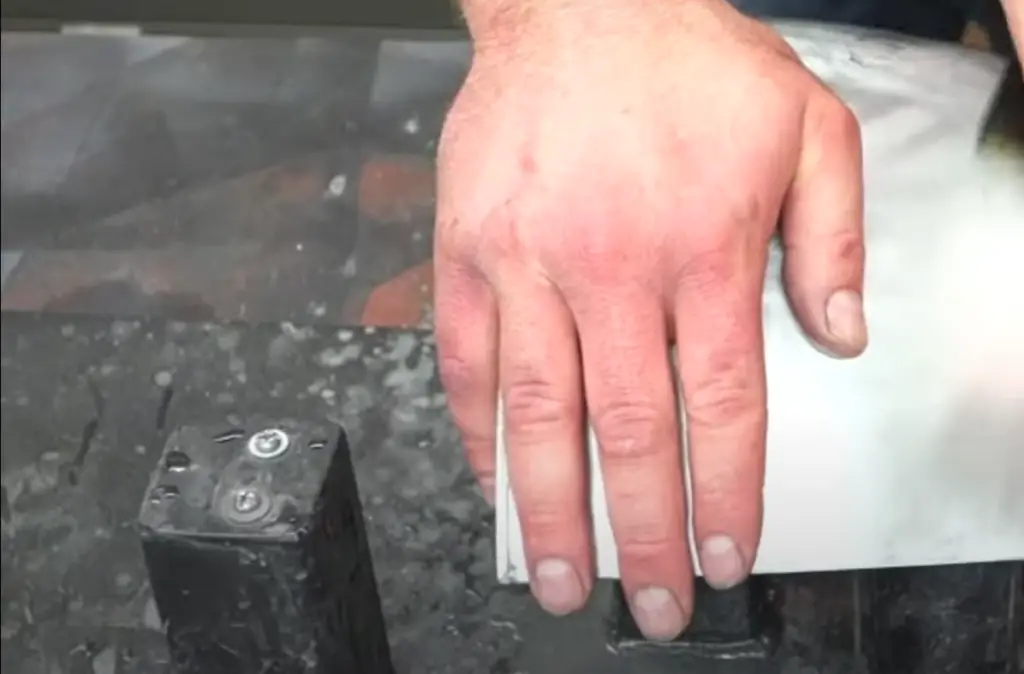
For larger aluminum items like outdoor furniture or siding on your home, you can mix equal parts of vinegar and water to create an effective cleaning solution. Wipe the mixture onto the surface with a damp cloth—you should see dirt and grime start to lift away!
For tougher dirt build up you may need to let the solution sit for a few minutes. Be sure to rinse any remaining residue from your item afterwards. Vinegar is also a great choice for polishing silverware and other metallic items too. [3]
The List Of Tools Needed to Clean Aluminum With Vinegar
- White vinegar – White vinegar is the most common type of vinegar used for cleaning aluminum. Its acidic nature helps to break down dirt, grease, and other debris on aluminum surfaces.
- Soft cloths – Use soft cloths such as microfiber or cotton to buff the surface of your aluminum after you apply the white vinegar solution. These materials are gentle on the finish and will help prevent further scratches while removing dirt and grime.
- Sponge – Use a sponge to apply the white vinegar solution onto your aluminum surface. Make sure that it is damp but not soaking wet in order to avoid creating too much foam or bubbles which can be difficult to wipe off.
- Towels – Have towels handy after cleaning with your white vinegar solution to dry off any remaining liquid and help protect the surface from scratches.
- Baking soda – If you need a bit of extra scrubbing power, mix baking soda into your white vinegar cleaning solution. This can be especially helpful for stubborn dirt and grime that won’t come off with just the cloth or sponge.
- Protective gloves – Wear protective gloves when handling the vinegar solution as it can irritate skin if left on too long. Also, take care not to let the solution sit on your aluminum surfaces for too long as this could cause discoloration or other damage.
- Safety glasses – Wear safety glasses during the cleaning process in case you accidentally splash any of the vinegar solution. This will prevent the solution from getting into your eyes and causing irritation.
- Old toothbrush – An old toothbrush can be a great tool for scrubbing away hard-to-remove dirt and grime from aluminum surfaces. Just make sure to rinse it off with clean water after each use to ensure that you don’t leave behind traces of vinegar on your aluminum surface.
- Plastic wrap – It can be used to cover up any areas of your aluminum surfaces that you don’t want to get wet. This is especially helpful if you have intricate designs or hardware that could be damaged by the vinegar solution.
- Old rags – Have some old rags on hand in case you need to wipe away excess vinegar solution or scrub off stubborn dirt and grime.
- Bucket – Fill a bucket with warm water and a small amount of detergent for washing off the vinegar solution after cleaning. This will help remove any soap residue that may remain on your aluminum surface. [4]
Methods to Clean Aluminum with Vinegar
For small spots
- Make a cleaning solution by mixing 1/4 cup white vinegar with 2 cups of water in a bucket or bowl.
- Submerge the aluminum item in the solution and let it soak for several minutes.
- Remove the aluminum from the solution and rinse with clean water to remove any remaining dirt residue.
- Take a soft cloth and use it to scrub away stubborn stains on the aluminum surface.
- Rinse again with clean water, then dry thoroughly with another soft cloth before using or storing the item.
For more difficult stains
- Try adding baking soda to your cleaning mixture (use about 1 tablespoon of baking soda per quart of liquid). This will create a paste that you can scrub gently onto the aluminum surface.
- Be sure to rinse and dry the item thoroughly, as it can leave a residue if not rinsed off completely.
- For an added shine, buff the aluminum item with a white vinegar or mineral oil when you are finished cleaning. This will help bring out its natural luster and protect it from further dirt buildup. [5]
How to Clean Cast Aluminum with Vinegar?
To begin, combine the same amount of warm water and white vinegar in a big bowl. You should soak a soft cloth or sponge in the vinegar/water mixture and use it to scrub the cast aluminum surface. Work in small circles until you start to see dirt and grime come off of the piece.
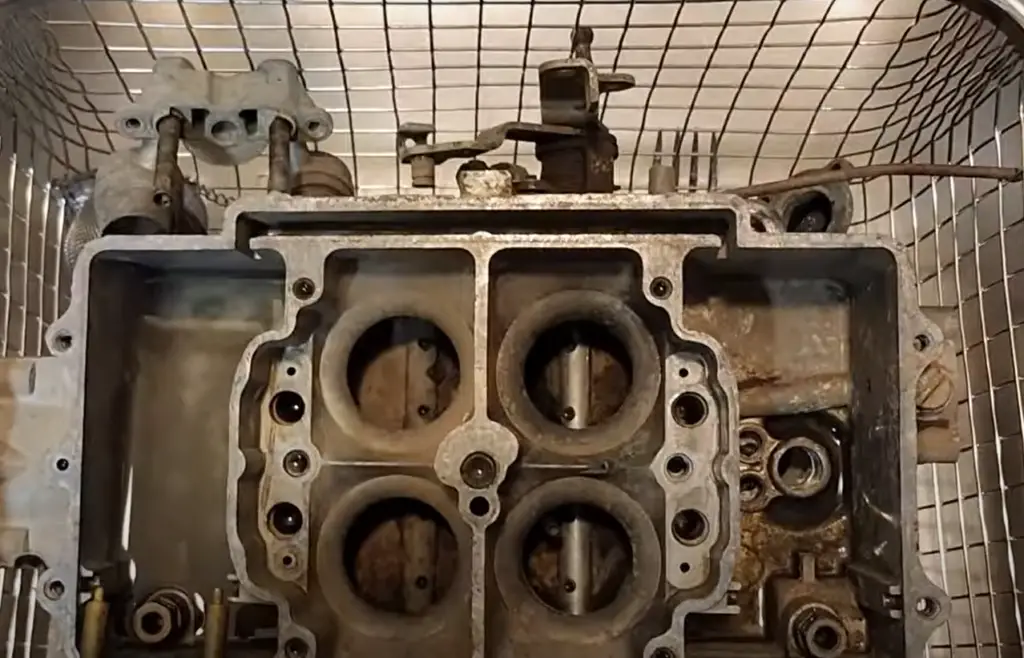
If there are areas that need extra attention use an old toothbrush to get into those hard-to-reach places. Continue scrubbing until the entire surface is clean then rinse it off with cool water. After rinsing let the piece air dry for best results. [6]
How to Clean Tarnished Aluminum?
Aluminum is a durable material. However, over time, aluminum may become tarnished due to environmental factors such as humidity and air pollution. Fortunately, you don’t need any special chemicals or products to clean your tarnished aluminum items. All you need is some basic household supplies and a little bit of elbow grease!
First things first, make sure to put on gloves when handling the aluminum item so that it does not come into contact with your skin. After doing this, prepare a mixture of water and baking soda in equal parts (about one tablespoon each) and apply it onto the tarnished area using a sponge or cloth. Scrub gently but firmly until the tarnish starts to come off.
If the baking soda and water mixture does not work, then it may be necessary to use a more abrasive cleaner such as steel wool or fine sandpaper.
Finally, you can rinse off the aluminum with warm water and dry it with a clean cloth before buffing it with a soft towel if desired. Don’t forget to inspect your aluminum pieces afterwards to ensure that any remaining tarnish has been properly cleaned away! With these steps, your aluminum items will look shiny and new once again. [7]
How to Clean Oxidized Aluminum?
To clean oxidized aluminum, you will need to use a specialized cleaner that is specifically formulated for this purpose. Depending on the severity of the oxidation, different products and methods may be necessary.
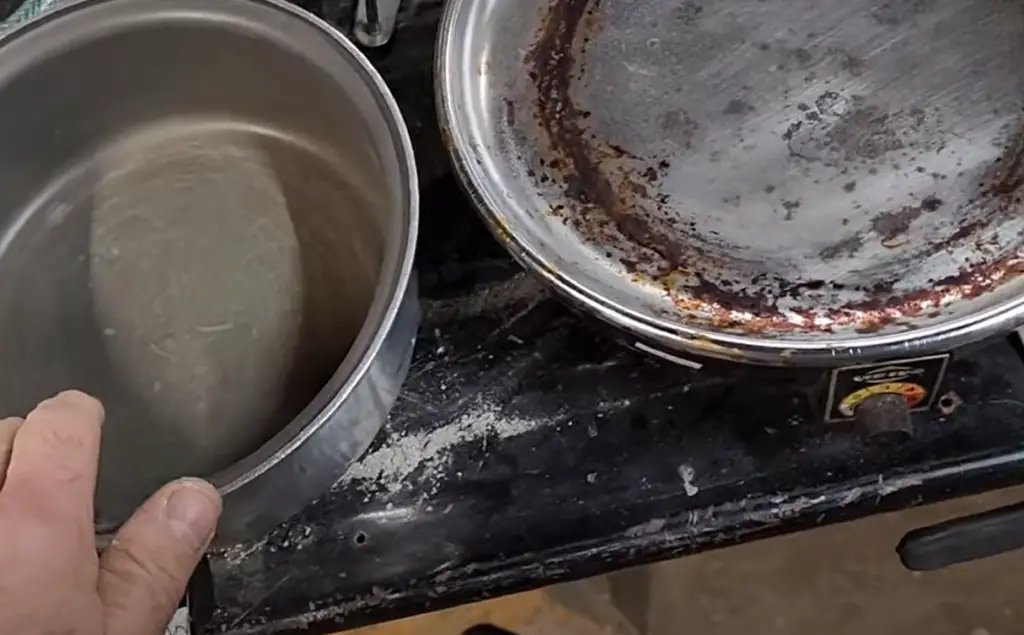
For minor oxidation, using a mild soap or detergent and warm water should be sufficient. Make sure to rinse thoroughly after cleaning with an appropriate pH neutral cleaner or baking soda solution.
For moderate to severe oxidation, a stronger metal polish containing abrasive compounds such as oxalic acid should be used. Before applying the polish, make sure to protect your hands and any surrounding surfaces from the product’s strong fumes and potential damage. Apply an even coat of the metal polish over the entire surface of the aluminum object, starting with a light pressure.
In the end, use a damp cloth to wipe off any remaining residue and then inspect the outcome to ensure it is satisfactory.If you are unable to remove the oxidation completely, you may need to use an aluminum polish containing powerful solvents instead of abrasive compounds. Follow the same steps as above but apply the product with greater caution due to its strong fumes and potential damage. [8]
FAQs
Will vinegar clean oxidized aluminum?
Yes, vinegar is a great option for cleaning oxidized aluminum. Mix the same amount of white vinegar and water in a spray bottle and apply the mixture on the surface of aluminum to remove oxidation. Allow it to sit for several minutes before scrubbing with a soft cloth or sponge.
Is baking soda and vinegar safe on aluminum?
Yes, baking soda and vinegar are both safe to use on aluminum. When used together as a cleaning mixture, they can help remove dirt, grease, and other buildup without damaging or discoloring the metal surface.
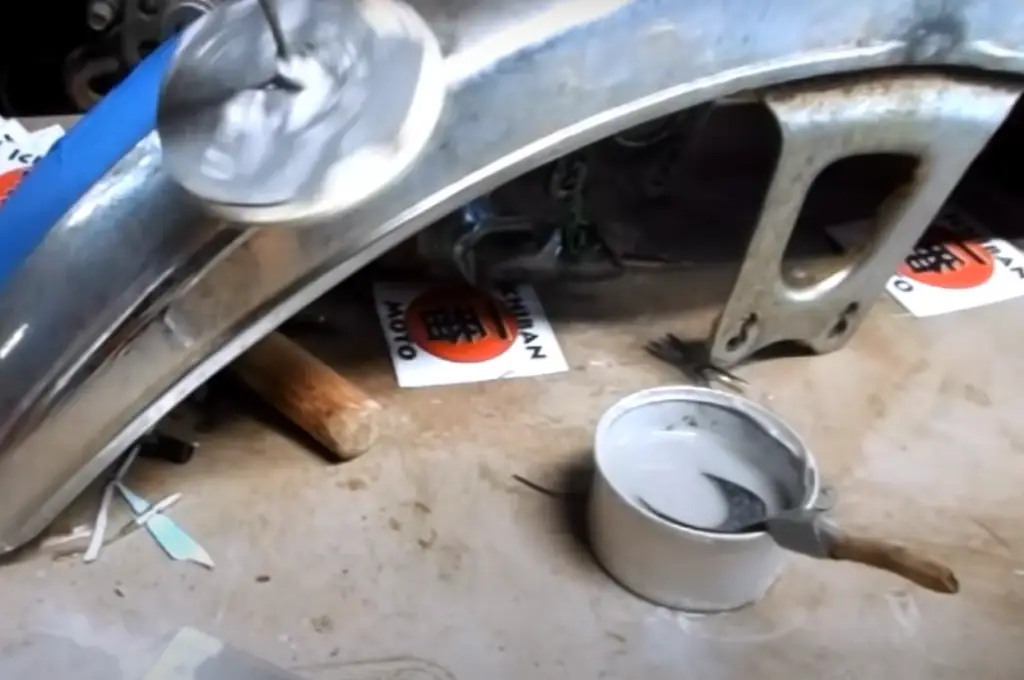
However, it’s important to remember that these acids may damage certain coatings and finishes on aluminum surfaces, such as anodizing or painting. It is recommended to test the solution in a small area before proceeding with cleaning. Additionally, make sure you rinse off any residue and dry the surface thoroughly afterwards in order to prevent corrosion from occurring over time.
Can you use vinegar to clean an aluminum pan?
Yes. Vinegar is a great natural cleaning agent for your kitchen and is excellent at removing stubborn grease and grime from aluminum pans. To clean your pan, first fill it with water until it’s halfway full. Then add ¼ cup of white or apple cider vinegar to the water and bring it to a boil. Allow the mixture to simmer for 15 minutes before draining it out. Then, using a non-abrasive cloth or scraper, remove any debris from the surface of the pan. With this easy method, you can keep your aluminum pans looking their best!
How long to let vinegar sit on aluminum?
To allow vinegar to sit on aluminum, you should leave it for approximately 15 minutes. During this time, the acidity of the vinegar will loosen any dirt or grime on the surface of the pan.
Useful Video: Will vinegar clean aluminum wheels?
Final Words
Vinegar is a safe and effective way to clean aluminum surfaces. Not only is it far less expensive than chemical cleaning solutions, but it’s also more eco-friendly too. To reap the benefits of cleaner surfaces and spotless aluminum products without risking damage, remember to always take all safety precautions into account by diluting the vinegar with water if necessary and wearing gloves as you clean. Avoiding abrasive materials when tackling tough spots is essential for preserving your prized possessions over time. With some patience and practice, you can easily bring that brand-new look back to any aluminum item in your home. If you needed help or wanted some inspiration for your own DIY cleaning venture, we hope this guide has given you a helping hand! So, if you’re ready to start sprucing up those aluminum elements throughout your house – get to polishing!
References:
- https://www.lovetoknow.com/home/cleaning/how-clean-aluminum
- https://www.lamansiondelasideas.com/en/home-crafts/homemade-tricks-to-clean-aluminum/
- https://ohsospotless.com/how-to-clean-aluminum/
- https://azrust.com/cleaning-aluminum-with-vinegar/
- https://tampasteel.com/3-ways-to-clean-aluminum/
- https://www.tipsbulletin.com/how-to-clean-cast-aluminum/
- https://blog.thepipingmart.com/metals/how-to-clean-tarnished-aluminium/
- https://www.trexo.ca/en/clean-oxidized-aluminum/

